Susan Sontag Quotes
Most popular Susan Sontag Quotes

Cogito ergo boom.
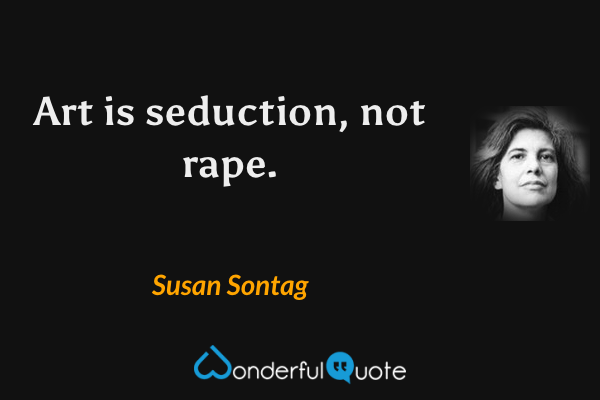
Art is seduction, not rape.

Cancer is a demonic pregnancy.

Literature usually begets literature.

My library is an archive of longings.

Depression is melancholy minus its charms.
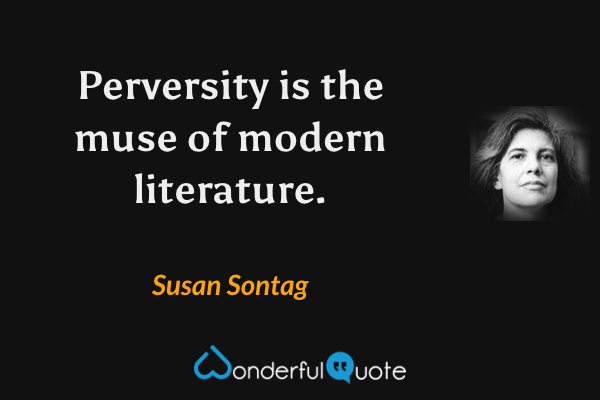
Perversity is the muse of modern literature.

False values begin with the worship of things.

Silence remains, inescapably, a form of speech.

Interpretation is the revenge of the intellect upon art.

He who despises himself esteems himself as a self-despiser.

Intelligence ... is really a kind of taste: taste in ideas.

Illness is the night-side of life, a more onerous citizenship.

Ambition, if it feeds at all, does so on the ambition of others.

The only interesting answers are those which destroy the questions.

The camera makes everyone a tourist in other people's reality, and eventually in one's own.
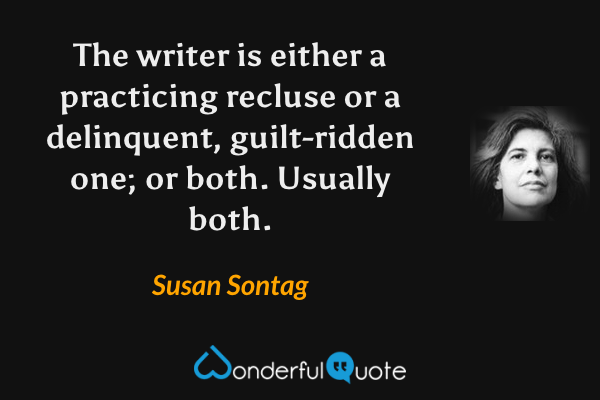
The writer is either a practicing recluse or a delinquent, guilt-ridden one; or both. Usually both.

Science fiction films are not about science. They are about disaster, which is one of the oldest subjects of art.

Camp is a vision of the world in terms of style — but a particular kind of style. It is the love of the exaggerated.

Photographs really are experience captured, and the camera is the ideal arm of consciousness in its acquisitive mood.

The possession of a camera can inspire something akin to lust. And like all credible forms of lust, it cannot be satisfied.

There's nothing wrong with standing back and thinking. To paraphrase several sages: "Nobody can think and hit at the same time."
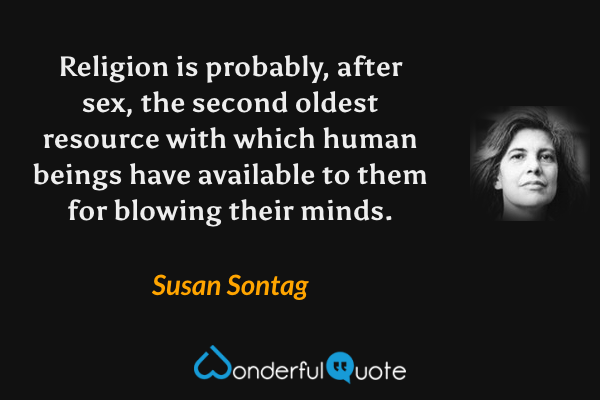
Religion is probably, after sex, the second oldest resource with which human beings have available to them for blowing their minds.

In the final analysis, "style" is art. And art is nothing more or less than various modes of stylized, dehumanized representation.

Sexuality is something, like nuclear energy, which may prove amenable to domestication, through scruple, but then again it may not.

So successful has been the camera's role in beautifying the world that photographs rather than the world, have become the standard of the beautiful.

To patronize the faculty of taste is to patronize oneself. For taste governs every free—as opposed to rote—human response. Nothing is more decisive.

Cinema is a kind of pan-art. It can use, incorporate, engulf virtually any other art: the novel, poetry, theater, painting, sculpture, dance, music, architecture.

Literature is the house of nuance and contrariness against the voices of simplification. The job of the writer is to make it harder to believe the mental despoilers.
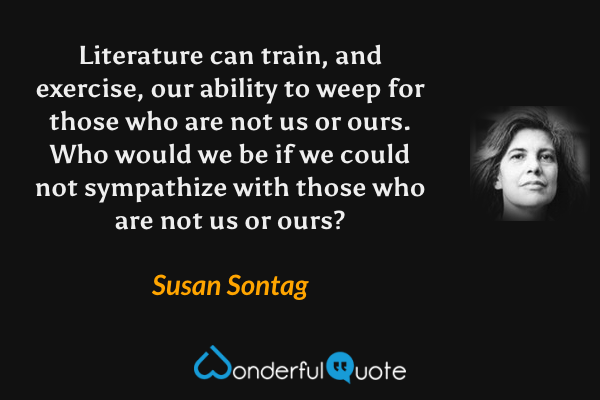
Literature can train, and exercise, our ability to weep for those who are not us or ours. Who would we be if we could not sympathize with those who are not us or ours?
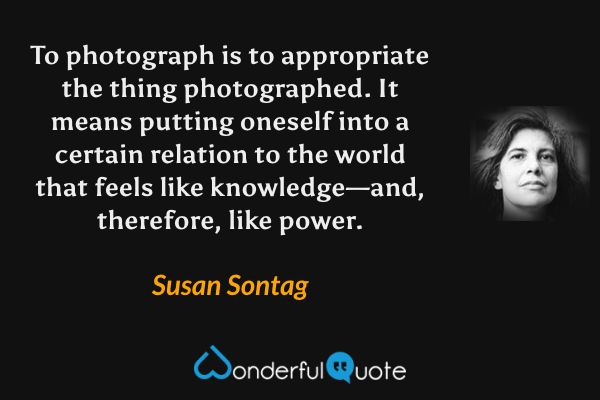
To photograph is to appropriate the thing photographed. It means putting oneself into a certain relation to the world that feels like knowledge—and, therefore, like power.

Ours is a society in which secrets of private life that, formerly, you would have given nearly anything to conceal, you now clamor to be invited on a television show to reveal.
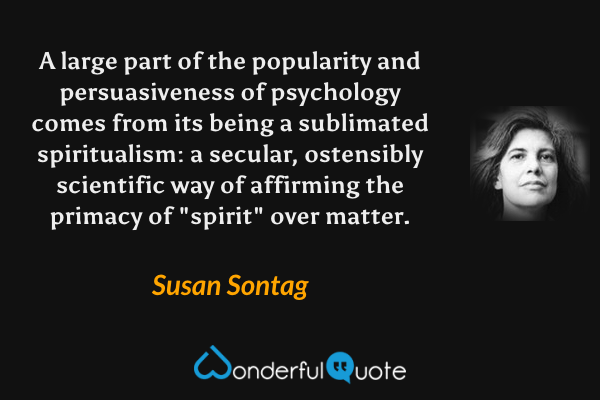
A large part of the popularity and persuasiveness of psychology comes from its being a sublimated spiritualism: a secular, ostensibly scientific way of affirming the primacy of "spirit" over matter.

Recently, photography has become almost as widely practiced an amusement as sex and dancing—which means that, like every mass art form, photography is not practiced by most people as an art. It is mainly a social rite, a defense against anxiety, and a tool of power.

I really believe in history, and that's something people don't believe in anymore. I know that what we do and think is a historical creation. I have very few beliefs, but this is certainly a real belief: that most everything we think of as natural is historical and has roots — specifically in the late eighteenth and early nineteenth centuries, the so-called Romantic revolutionary period — and were essentially still dealing with expectations and feelings that were formulated at that time, like ideas about happiness, individuality, radical social change, and pleasure. We were given a vocabulary that came into existence at a particular historical moment.
Intelligence is really a kind of taste: taste in ideas.
Camp is a vision of the world in terms of style—but a particular kind of style. It is love of the exaggerated.


